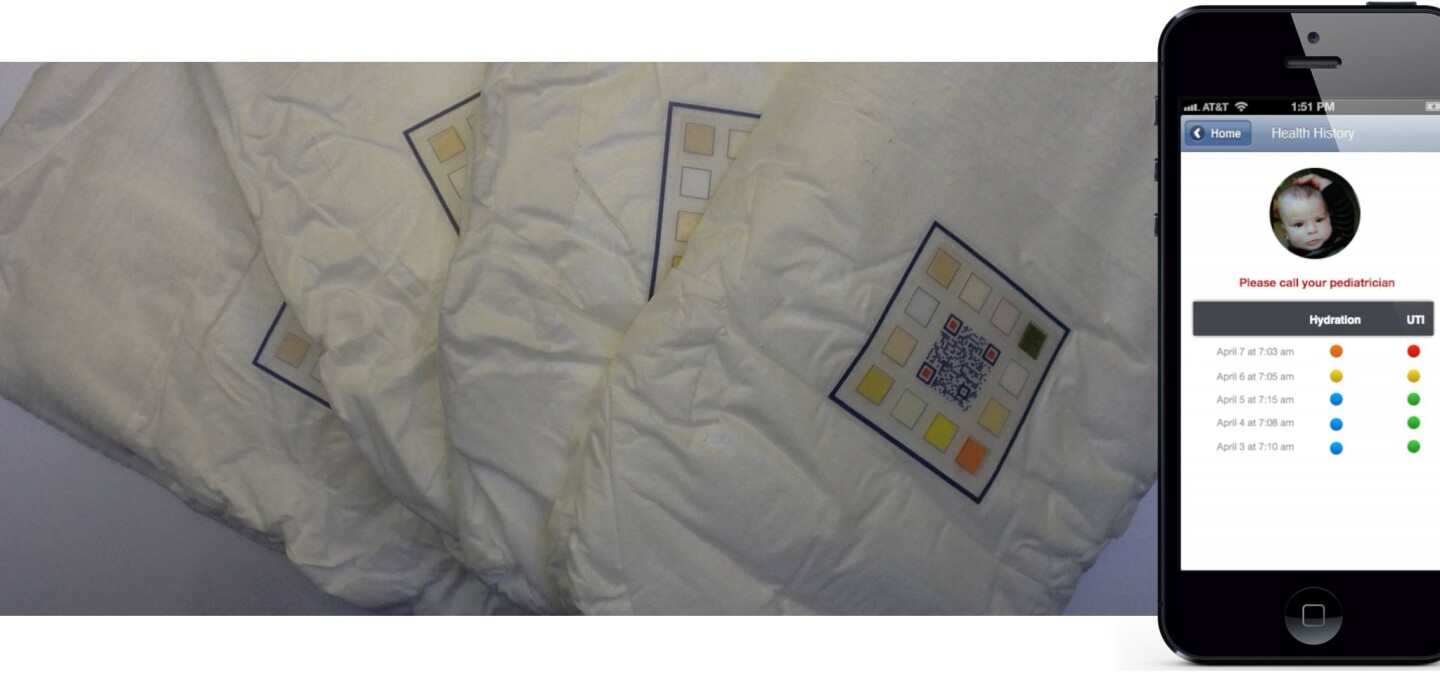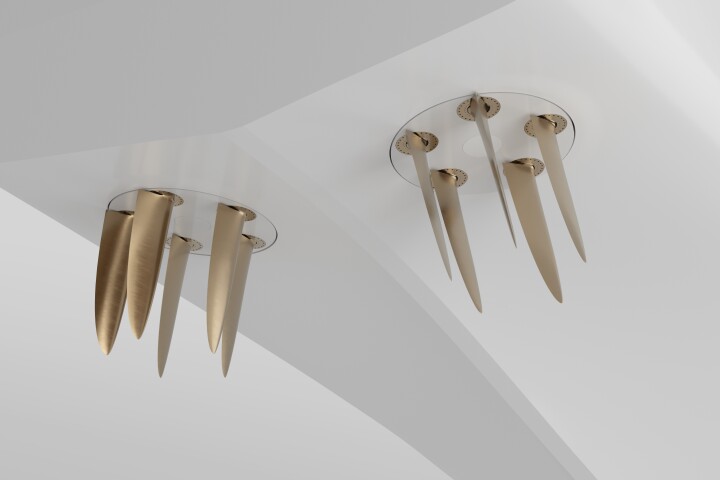Diapers usually rank very low on the list of items in need of a high-tech upgrade, despite products like the TweetPee recently hitting the market. But unlike a Twitter-enabled diaper, which provides information that anyone with a nose could figure out on their own, a new diaper from Pixie Scientific could actually warn parents of health issues before they become serious. The Smart Diaper uses several reactive agents and an app to monitor irregularities in an infant's urine over time and alerts parents if they need to visit a doctor.
Aside from a square panel on the front, the Smart Diaper looks and fits just like a regular disposable diaper. On the inside, that panel contains several non-toxic test strips situated underneath the absorbent core, so they never actually touch the child's skin. Once the diaper is wet, the strips react to leukocytes, nitrates, and a variety of other substances that could each indicate different health problems.
Parents can then use an accompanying app to scan the QR code on the outside of the diaper, which is surrounded by the colored results of each test. The app will note down each strip's reading for that day, monitor any changes over time, and apply several algorithms to identify any notable trends. If it detects a potential issue, it will send an alert to the parents to make a trip to their pediatrician, who can run their own tests and consult the app's log if needed.
It may sound a little overprotective, but a diaper that performs a basic urine analysis could act as an early warning system for potential problems before more dangerous symptoms begin to show. According to the developers, the Smart Diaper might help parents learn about a urinary tract infection, dehydration, or a kidney condition, so they can then seek proper treatment as soon as possible.

However, Pixie Scientific emphasizes that the diaper is not intended to give a full diagnosis, which is better left to a trained professional. The company plans to distribute the diapers primarily to hospitals, pediatricians' offices, and parents whose children need extra monitoring the most.
Pixie Scientific is currently running an indiegogo campaign with a target of US$25,000 to finalize the Smart Diapers and bring them into mass production. The funds raised will go towards testing the diapers further in a hospital setting, registering with the FDA, and beginning large-scale manufacturing. Contributors can pre-order various packages, with the diapers costing about $5 each and the first batch shipping in October.
Once the diapers reach the public, the designers hope to use the data gathered from the app to further improve their algorithms and they've already taken steps to ensure any information they collect is kept private. If they receive enough funding to reach their stretch goals, they also plan to study any possible trends amongst communities and develop the diaper further to detect Type 1 Diabetes.
Check out the video below to hear how husband and wife inventors, Yaroslav Faybishenko and Jennie Rubinshteyn, devised the Smart Diaper.
Sources: Pixie Scientific, indiegogo







